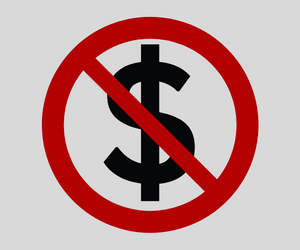Harriet Hageman is the environmental lawyer who defeated incumbent Rep. Liz Cheney by a landslide in Wyoming's much-watched Republican House primary. Hageman, who will surely trounce token Democratic opposition in the general election, is now getting ready to take office. She was in Washington last week -- not for that preparation, but to argue in a lawsuit against the Environmental Protection Agency over its disastrous actions causing the Gold King Mine disaster in Colorado in 2015. That's the kind of thing she does in her life as a lawyer.
While in Washington, Hageman sat down for an interview about the race against Cheney -- how she won, what it means, and what she plans to do when she takes office.
How did she beat Cheney? Two reasons. "One is, I'm a good candidate, and I'm going to be a good member of Congress," Hageman said. The other was: Hageman ran a race centered on Wyoming. She discussed her 30-plus years as an attorney working on "water and natural resources issues, property rights, constitutional rights," representing the state's ranchers, farmers, energy producers and more. "I have been fighting for Wyoming," Hageman said. "I wasn't just running against Liz Cheney, which I think is what some people, especially back in D.C., might think. I was running for Wyoming. I was running to address the issues that are important to us." That's how to win in Wyoming.
Cheney's biggest problem, as Hageman saw it, was that many voters believed she had become disconnected from Wyoming. Cheney was seldom in the state, Hageman said, and "never answered for her votes, never answered for the decisions she made." Cheney, Hageman concluded, "simply abandoned Wyoming, [and] I think what it exposed was that she had used Wyoming for the last six years as a mechanism to get power, but she didn't actually represent Wyoming's interests."
That's how you lose races, when voters become convinced that you have gone Washington, that you are focused inside the Beltway, that you have forgotten the people who sent you there.
Recommended
So Hageman won. Now what? A conversation with her reveals the depths of her feelings about her home state, especially its natural resources, and a broad suspicion about the motives and competence of federal regulatory agencies that routinely tell Wyomingites how to use those resources.
The state is the largest producer of coal in the nation -- more than three times as much as West Virginia and six times as much as Pennsylvania -- and one of the largest producers of oil and natural gas. It has huge deposits of uranium and is a major cattle producer. Hageman likes to say that Wyoming puts food on your table, gas in your car, a roof over your head, and it paves your highways, too. The problem is, a lot of people involved in those industries -- coal, oil and gas, mining, beef -- feel under attack from the Democratic administration and the liberal activist groups that support the administration. They feel that way, of course, because they are under attack. "Wyoming is one of the largest targets of the Biden administration in terms of attempting to destroy our economy," Hageman says.
So her goal in Congress is to stop that, or at least fight back. Ask her for specifics, and she goes into detail not just about coal and oil and gas, but about things like the "Roadless Rule," by which the government bans timber cutting and most other uses of federal land. (Forty-eight percent of Wyoming's land is owned by the federal government.) She speaks at length about BLM, by which she means not Black Lives Matter but the federal Bureau of Land Management. She can discuss in great detail the issue of RFID ear tags -- devices that federal regulators want to require for every head of cattle in Wyoming.
These are not flashy, sexy issues that attract news coverage in Washington, which has instead been consumed by the made-for-TV episodes of Cheney's Jan. 6 committee. But they are issues about which many Wyomingites have strong feelings.
For years, Hageman has given a speech she calls "Regulation Without Representation." Congress has abdicated its lawmaking role to the federal regulatory agencies, she says. It is time to cut down and pull back those agencies' power and reach, and have Congress return to its proper role of making laws that are then enforced by the executive branch. It's a classic conservative critique of the regulatory state and government overreach. And that is a very popular view in, among other places, Wyoming.
Harriet Hageman talked about it a lot in the recent campaign. Liz Cheney talked about Jan. 6. As for Hageman and Donald Trump, she certainly benefited from the former president's endorsement. The last time the two talked was the day after the election -- "He was pretty happy," Hageman says. Asked if she wants Trump to run for president in 2024 -- remember that he won Wyoming with 70% of the vote in 2020 -- Hageman said, "If he chooses to do that, I would support him." Asked again if she wants that to happen, she said, "I miss President Trump. His policies were really incredible for the United States, and they were especially incredible for Wyoming."
Those are obviously controversial comments outside the 70% of Wyomingites who voted for Trump. But Hageman saw, and sees, Trump in terms of issues, not controversy. She recalled that when she first met and talked to Trump when he was president, they talked about regulatory reform and energy independence. Those were, of course, two big priorities of the Trump administration, and they are two big priorities, probably the biggest priorities, of Harriet Hageman the lawyer, congressional candidate and, come next year, Wyoming's next member of the House of Representatives.
This content originally appeared on the Washington Examiner at washingtonexaminer.com/opinion/sounding-the-alarm-over-joe-biden.
(Byron York is chief political correspondent for The Washington Examiner. For a deeper dive into many of the topics Byron covers, listen to his podcast, The Byron York Show, available on the Ricochet Audio Network at ricochet.com/series/byron-york-show and everywhere else podcasts are found.)


























Join the conversation as a VIP Member